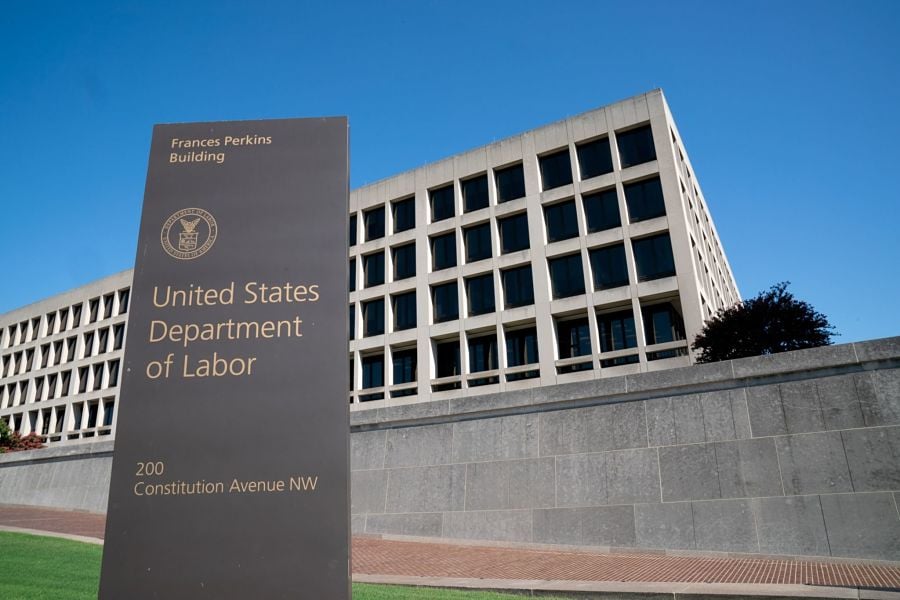

The Department of Labor got a taste over the weekend of the fierce opposition it will encounter as it tries again to strengthen investment advice rules for retirement accounts.
Late Friday, the agency sent a proposal for review to the Office of Management and Budget that “would amend the regulatory definition of the term fiduciary … [to] more appropriately define when persons who render investment advice for a fee to employee benefit plans and [individual retirement accounts] are fiduciaries.”
It’s the DOL’s latest attempt to impose heightened advice standards for retirement savers, an effort that has been underway for more than a decade. An Obama administration fiduciary rule proposed in 2016 was struck down two years later by a federal appeals court that ruled in favor of financial industry opponents who filed a lawsuit against the regulation. A less stringent Trump administration version of the rule also drew industry concern.
The Biden administration DOL let the Trump rule stand but is now proposing to cast the fiduciary net wider so it covers more financial advisors to retirement plans. The text of the proposal won’t be made public until the DOL releases the proposal following the OMB’s review, which could take several weeks to a couple months.
Even before the details of the proposal are known, the insurance industry attacked the proposal on Saturday.
“DOL is plowing ahead with its latest damaging proposal despite the fact that federal courts have repeatedly rejected their efforts to expand the fiduciary rule in recent years, as well as the extensive body of research showing that this type of proposal will significantly harm lower and middle-income workers and exacerbate the wealth gap for Black and Latino families,” Insured Retirement Institute President Wayne Chopus said in a statement Saturday.
The American Council of Life Insurers also used the theme of higher-priced fiduciary advice in its resistance to the latest DOL proposal.
“The Labor Department must not adopt a fiduciary-only regulation like it did in 2016,” ACLI President Susan Neely said in a statement Saturday. “[M]ost Americans cannot afford to engage a fiduciary investment adviser, who typically charge high, ongoing fees for their services.”
The insurance industry appears to be worried in part that the DOL proposal will reform a prohibited transactions exemption for retirement accounts — known as PTE 84-24 — to impose fiduciary duty on independent insurance agents, many of whom sell annuities.
“Will probably be a month or two (it varies) before we see exactly what it looks like, but the chatter is that PTE 84-24 will be significantly revised or removed altogether,” Kevin Mechtley, vice president for business development and chief innovation officer for the independent annuity channel at Sammons Financial Group, wrote in a LinkedIn post over the weekend.
Many investor advocates supported the Obama administration’s DOL fiduciary rule, saying that it raised the bar on retirement saving advice in order to protect investors from brokers’ and insurance professionals’ conflicts of interest.
Opponents of the nascent DOL proposal say the agency should stand down because other advice regulations are now in place that did not exist when the Obama rule was proposed. Regulation Best Interest, the Securities and Exchange Commission’s broker advice standard, went into force in June 2020. Since then, a revised annuity suitability rule approved by the National Association of Insurance Commissioners has been adopted by dozens of states.
“Combined, these actions have greatly enhanced the standards financial professionals must follow,” Neely said. “And, they address the potential conflicts of interest the Labor Department attempted to address in 2016 without limiting access to annuities, the only financial product in the marketplace that can provide guaranteed income for life.”
But some regulators question whether the SEC’s Reg BI is strong enough to curb financial advisors’ conflicts. The highest court in Massachusetts recently upheld the state’s fiduciary rule — which applies to all advisors doing business in the state. The regulation was advanced by Massachusetts' top securities regulator, William Galvin, who said it provides a higher advice standard than the federal regulation.

"QuantumRisk, by design, recognizes that these so-called “impossible” events actually happen, and it accounts for them in a way that advisors can see and plan for," Dr. Ron Piccinini told InvestmentNews.

Advisors who invest time and energy on vital projects for their practice could still be missing growth opportunities – unless they get serious about client-facing activities.

The policy research institution calculates thousands in tax cuts for Washington, Wyoming, and Massachusetts residents on average, with milder reductions for those dwelling in wealth hotspots.

Yieldstreet real estate funds turned out to be far riskier than some clients believed them to be, according to CNBC.

The race to 100 transactions ended a month early this year, with April standing out as the most active month on record for RIA dealmaking.
Orion's Tom Wilson on delivering coordinated, high-touch service in a world where returns alone no longer set you apart.
Barely a decade old, registered index-linked annuities have quickly surged in popularity, thanks to their unique blend of protection and growth potential—an appealing option for investors looking to chart a steadier course through today's choppy market waters, says Myles Lambert, Brighthouse Financial.
